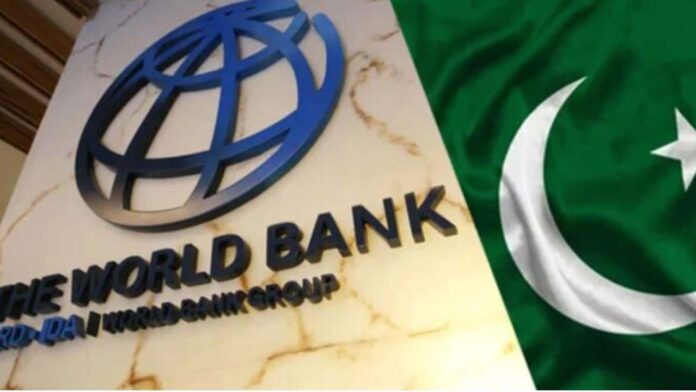The World Bank has recently withdrawn a budget support loan worth over $500 million from Pakistan due to unmet conditions, creating significant challenges for the nation’s already fragile economic landscape. The canceled loan was tied to the Affordable and Clean Energy (PACE-II) program and highlights critical gaps in Pakistan’s power sector reforms. Here’s what happened and what it means for the country.
Why Was the Loan Canceled?
The primary reason for the cancellation of the $500–600 million loan was Pakistan’s failure to meet key conditions set by the World Bank. These included renegotiating power purchase agreements with Chinese power plants established under the China-Pakistan Economic Corridor (CPEC). Despite months of discussions, no breakthrough was achieved, with China repeatedly refusing to reopen these contracts.
Also Read: Govt Plans to Introduce PayPal and Boost IT Export Remittances
Additionally, inefficiencies within Pakistan’s power distribution companies and the government’s inability to plug the flow of circular debt further complicated matters. As a result, the World Bank altered its lending strategy, focusing instead on directly financing specific energy projects like the Dasu Hydropower project.
Impact on Pakistan’s Economic Outlook
The World Bank’s decision not to provide any new budget support loans during the current fiscal year has left Pakistan scrambling to fill an estimated $2 billion financing gap. This shortfall could exacerbate the nation’s fiscal challenges, as it has limited access to international financial markets due to its low credit rating (CCC-Plus).
Moreover, the cancellation of PACE-II reflects the slow progress in implementing energy reforms. Key inefficiencies in power distribution, including Rs. 660 billion in losses from state-owned companies last fiscal year, and the failure to address the ballooning circular debt of Rs. 2.393 trillion, have further strained the sector.
What Does This Mean for Power Sector Reforms?
While the World Bank’s first phase of PACE (PACE-I) included a roadmap to privatize power distribution companies, the plan stalled, resulting in missed targets. Under PACE-II, Pakistan was also expected to:
- Improve the efficiency of power distribution companies.
- Reduce cross-subsidies that inflate electricity prices.
- Stabilize the circular debt problem.
Unfortunately, progress on all fronts remains insufficient. The government’s inability to renegotiate agreements with CPEC power plants and eliminate unjustified cross-subsidies means that electricity prices remain high—Rs. 65 to Rs. 70 per unit, including taxes and surcharges.
The Way Forward
Despite the setback, Finance Minister Muhammad Aurangzeb remains optimistic, claiming Pakistan will secure external financing on favorable terms. However, without major structural reforms in the power sector, the government’s reliance on international loans and high-cost borrowing will continue to weigh on the economy.
Also Read: Chilly Weather Ahead: Rain and Snow Expected in Parts of Pakistan
To regain confidence and attract international support, Pakistan must focus on:
- Enhancing transparency in circular debt reporting.
- Implementing long-overdue energy reforms.
- Diversifying its financing sources to reduce dependency on international lenders.
FAQs
- What is the PACE-II program?
The PACE-II program is part of the World Bank’s Affordable and Clean Energy initiative, aimed at promoting energy sector reforms in Pakistan. - Why did the World Bank cancel the loan?
Pakistan failed to meet conditions like renegotiating CPEC power purchase agreements and addressing inefficiencies in power distribution. - What are the implications of this decision?
The cancellation could worsen Pakistan’s financing gap and delay much-needed energy sector reforms. - How can Pakistan address these issues?
By implementing power sector reforms, improving transparency, and reducing circular debt. - Will the World Bank provide future loans to Pakistan?
No budget support loans are planned for the current fiscal year, but the World Bank continues to fund specific energy projects like Dasu Hydropower.



